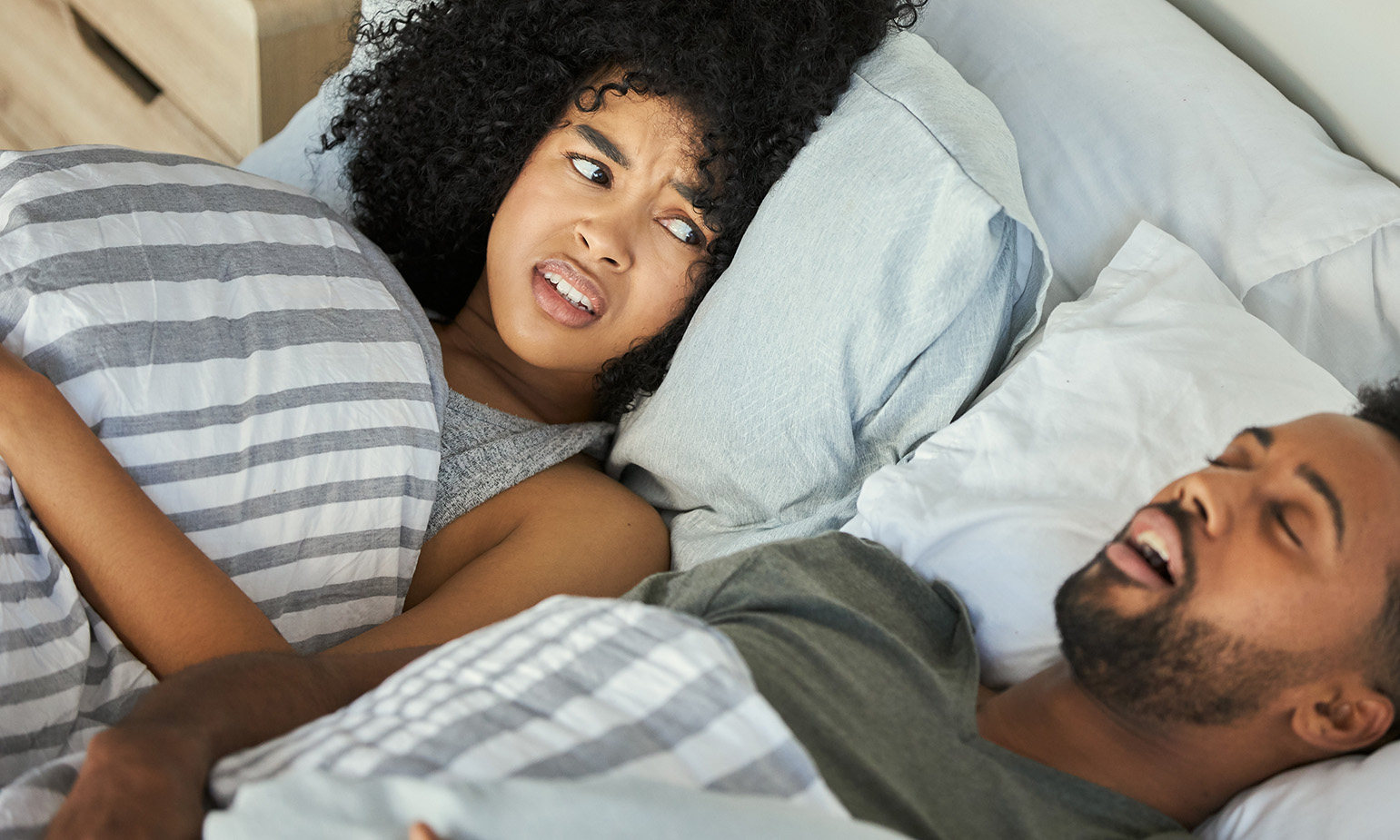Solutions for different kinds of snoring
Snoring makes many people embarrassed and uncomfortable. The British "Daily Mail" recently published an article that published the 6 major causes of snoring summarized by Dr. Guy Leszina, a sleep center expert at London Bridge Hospital, and gave treatment recommendations.
1. Sinusitis. Snoring caused by sinusitis accounts for 20% of snoring cases. Symptoms include nasal congestion, facial pain, and headaches. Hold one nostril and breathe with the other side closed. If breathing is not smooth on one side, you should see a doctor confirm whether there is sinusitis, nasal septum deviation, etc.
[Treatment suggestions] Some steroid nasal sprays (such as beclomethasone, budesonide, etc.) help to clear the nasal cavity, and normal saline can also be used to clean the nasal cavity twice a day. At the same time, actively treat sinusitis, and obese people lose weight appropriately.
2. Smoking and drinking. Many people don't know that drinking alcohol, especially drinking a glass of wine before going to bed, may relax the muscles of the whole body, including the throat muscles, and induce snoring. In addition, smoking can cause inflammation of the mucous membranes of the nose and throat, resulting in narrowing of the respiratory tract and increasing the risk of snoring.
[Treatment suggestions] Quit smoking, get rid of bad habits of drinking before going to bed. Sleeping on your back may also increase the risk of snoring, and it is best to correct it in time. If you often dance and dance while sleeping, check for restless legs syndrome and other diseases.
3. The nose has been injured. If the nose has been severely injured, such as being hit by a football or tennis racket, it may cause fractures, deformity of the nasal diaphragm, etc., which will further cause sleep snoring.
[Treatment suggestions] For those who have suffered a traumatic nose, especially those with a collapsed nose bridge caused by the trauma, it is best to go to the otolaryngology department for a thorough examination and perform surgery if necessary to ensure that both nostrils can breathe smoothly.
4. Stubby neck. People with stubby necks have a lot of fat around the airways, which narrows the upper airways and affects airflow, making it easier to snore during sleep.
[Treatment suggestions] Appropriate weight loss. If necessary, CPAP and oral appliances can be used to treat snoring. The instrument expands the narrow part of the pharynx by the principle of "blowing a balloon" into the respiratory tract.
5. Hypertrophy of the tonsils. Hypertrophy of the tonsils or adenoids can easily cause narrowing of the airway in the throat, which in turn increases the chance of sleep snoring. In addition, if the bite is too deep and the jaw is retracted, the tongue can easily block the airway and cause snoring.
[Treatment suggestions] From a long-term perspective, receiving tonsillectomy can solve airway stenosis and reduce the risk of snoring. Frequent steam fumigation also helps to open the airway.
6. Allergies. After some patients come into contact with cats, pollen, and other allergens, they will aggravate the obstruction of the respiratory tract and are more prone to snoring.
[Treatment suggestions] People who love allergies are best not to bring pets into the bedroom. Appropriate use of steroid nasal sprays and antihistamines can help relieve symptoms of allergic nasal congestion. In severe cases, a nasal dilator can be used, which can effectively prevent snoring.
Disclaimer: and some pictures are from the Internet. If there is any infringement, please contact to delete!


Comments
Post a Comment